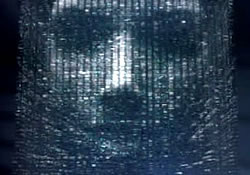The Undeniable Logic of The Harm of Non-Compensatory Exclusion from Nature

My logic is undeniable.
From Self-Ownership
- A right is something which is legitimate independent of any specific person or group of people, otherwise it's a privilege.
- If any prerequisite of a thing is a privilege, then that thing must also be a privilege because it is cascadingly contingent.
- Humans need access to natural opportunities to exist in both the moment (location) and continually (oxygen, food, water, heat).
- All verbs and nouns must operate on a non-null noun, that is any NOUN.VERB combination which is true requires that NOUN exists. All relationships operate on the properties of multiple entities and no relationship can exist if one or more of the entities is a null reference.
#1 is definitional.
#2 is tautological whether rights are considered to be "that which is correct" or "that which cannot be interfered with by another moral agent" or "legitimate claim." It can't be correct to have taxpayer-funded health care but also correct to have no earned money taken from you. Libertarians rightly point out the conflicts with such "positive rights."
#3 is a fact.
#4 is based on logic and the meaning of terms and is about as close to a useful axiom as you're going to get.
Now, let's have some fun.
Per #4: Self-ownership requires that self exists.
Per #3: Existence of the self requires access to natural opportunities.
Per #2: If access to nature is a privilege, then self existence is a privilege, and self is a privilege and self-ownership is a privilege.
Per #1: Something is not a right if it's a privilege, if self is a privilege, self-ownership is not a right.
Boom. Headshot.
Immediate Attempts at Rebuttals
- Arguments against the validity of the argument itself. Try again.
- Arguments against the definition of rights. Sure, but then you can't use self-ownership (and you shouldn't anyways)
- Arguments against the meaning of prerequisite of self-ownership. Try again.
- Access to nature is not a prerequisite. Try again.
- It's not definite that someone wouldn't let you work for them or access land. True, but it would be a privilege wouldn't it? Remove that guy and land from the equation since we're talking about rights.
- You can work for others to get the money. Where? Also, that makes self-ownership contingent on the permission of others.
- You have access now. Not as a right. Test that and watch people with guns show up.
- What about food? Food is a prerequisite to self and self-ownership. Sure. However, obtaining food is not necessarily contingent on others, that is to say other-produced food is not a prerequisite of self. Yes, people can deny you a right to take certain food, but it's conceivable that you can grow your own and survive with no one either interfering with you or you needing to get permission from another.
- But common ownership is inefficient. Yup. Who said anything about common ownership?
- But people need to not lose property in their improvements. Maybe. Self-ownership needs to trump property in external things if the two come into conflict since the latter is only justified by reference to the former. There are already types of improvements which can be lost.
Access to energy, etc is only a prerequisite for continued existence.
That you exist now only implies you had access to these things in the past, not necessarily that you will have access to these things in the future. At time t you can exist, but not have access to food/whatever at time t+1 and so later stop existing. Whether you continue to have access to something at a particular time has no bearing on whether or not you existed in the past relative to that time.
Unless you interpret self-ownership to mean "a right to always exist" or "a right to exist at a particular arbitrary time" I don't think your conclusion follows. Furthermore, I think you are interpreting self-ownership to mean a positive right to exist and in my experience libertarians are more likely to interpret it as a negative right to exist (among other things, perhaps).
Rights can't be backwards-looking since the past is perceived as fixed and ought implies can. People can alter their expectations and respect constructs going forward based on new information. What does it mean to say that one has a right to something because they could access it in the past without the permission of another? To me that sounds like they had a right. If self-ownership is defined this way, it self-refutes since most libertarians agree with the acceptability of abortion which means that everyone's existence under such a system was at one point contingent upon the privilege of another. They would thus only have a privilege of self-ownership now.
Even if the particular individual was against abortion, if (s)he was a libertarian, (s)he'd probably be okay with suicide before bearing children or the freedom to engage in activities which endanger reproductive capabilities. Any children's lives were contingent on the privilege of progenitors not making certain choices.
Even though rights are transient and can have sunrise conditions, I've never encountered a negative right with a sunset date. Slavery is wrong now and going forward indefinitely. It a bunch of people decide tomorrow that slavery is great, then slavery becomes right again, but people now don't plan "okay, next Tuesday the correctness of slavery is going to flip." While the ability to exist depends on privileges in the past, it can be a right now and going forward.
By the way, this is how abortion works NOW. At one point, the child has no rights and at another they do even though the child only exists now due to the good graces of another at a time when they had no rights or didn't exist. The prerequisites GOING FORWARD are still considered rights - I can't justifiably place a baby in a room containing no oxygen and claim I didn't violate its rights. I can't say "well, all I did was take away the oxygen - (s)he could've chosen to not die" or, when challenged on that claim "well, (s)he could've been aborted before or I could've jizzed in a sock." The only other option, as I said in #2 is to deny self-ownership altogether.
Someone else challenged premise #2 saying, in effect, that the rights don't demand existence. I suppose this could be summed up as you can't get an is from an ought. Privileges are only distinct from rights in that they are contingent on a more specific set of conditions or, if you believe in inalienable rights, that they are contingent period. Contingent-ness travels along prerequisites even if the prerequisites and the entities themselves are hypothetical. For instance, if I decided that a unicorn had a right to fly, then I'm making either claim which is either a relational or intrinsic to the entity. Per #4, unicorn.rightToFly is a non-true value if unicorn is null and Rel(unicorn, rightToFly) is also false if unicorn is null.
function(unicorn) {
return isRight(unicorn.fly); // possible null reference exception
}
The Liver Objection
|
Another objection was that there can be situations where existence (and thus self-ownership) are dependent on the produced goods of another. This isn't the case with food, but could be the case where only a single donor has the right liver for someone and no other solutions are possible.
This objection is valid and would make self-ownership a privilege in certain circumstances. I respond by saying that my argument is true, but incomplete for how I'd want to see it put into practice. Expanding it to "people ought have an equal right to self-ownership not contingent on the produce of others" still keeps it true, but eliminates the "liver objection." |

